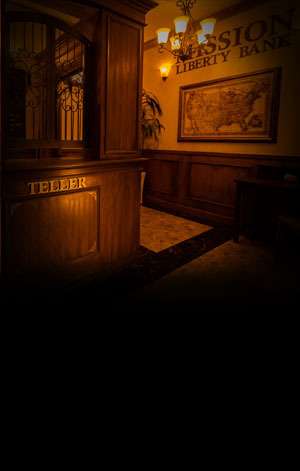Can escape room Orange County be used as a training tool for professionals?
Can escape room Orange County be used as a training tool for professionals?
In recent years, immersive problem-solving experiences have found their way from entertainment venues into corporate training curriculums. In Anaheim, professionals are increasingly turning to escape room orange county as an interactive training tool that hones critical skills in a high-engagement setting. With games such as Hydeout, Darkest Hours, Bank Heist, and End of Days, teams face a variety of puzzles and scenarios that mirror real-world challenges, creating a dynamic environment for learning and growth.
The Role of Problem-Solving in Professional Development
Effective problem-solving lies at the heart of many modern professions—from project managers untangling complex deliverables to healthcare teams diagnosing multi-factorial cases. Escape rooms place participants in time-sensitive situations where they must:
-
Analyze limited information
-
Identify patterns and clues
-
Prioritize tasks under pressure
These conditions simulate workplace stressors, encouraging professionals to develop mental agility. By debriefing each challenge, trainees gain insight into their individual thinking styles and recognize areas for improvement, translating game-based success into real-life competence.
Enhancing Teamwork and Communication Skills
Communication breakdowns often derail even the best-planned projects. In contrast, escape rooms demand constant verbal coordination:
-
Sharing discoveries clearly
-
Delegating tasks based on each member’s strengths
-
Listening actively to peer suggestions
Whether cracking codes in Hydeout or coordinating a multi-step heist in Bank Heist, teams learn to build trust and adjust communication patterns. Such experiential learning fosters a deeper appreciation for diverse working styles and reinforces the importance of unity under time constraints.
Real-World Scenarios Simulated by Escape Rooms
Well-designed rooms replicate situations that professionals might encounter:
-
Crisis management in Darkest Hours, where teams race against a “ticking clock”
-
Strategic planning in End of Days, requiring long-term thinking to prevent fictional catastrophes
-
Financial analysis in Bank Heist, decoding vault combinations and negotiating virtual transactions
These simulations allow participants to experiment with leadership approaches and risk-assessment techniques in a safe, controlled environment, then reflect on outcomes to fine-tune real-world decision-making.
Customizing Scenarios for Industry-Specific Training
One of the greatest strengths of using escape rooms as a training tool is adaptability. Facilitators can tailor puzzles and narratives to reflect:
-
Compliance protocols in regulated industries
-
Safety procedures in manufacturing or healthcare
-
Sales negotiation tactics in service-oriented sectors
By adjusting storylines and incorporating relevant technical terminology, trainers maintain engagement while ensuring that lessons learned are directly applicable to the participants’ field.
Measuring Learning Outcomes and Return on Investment
To validate the effectiveness of any training, metrics are essential. In the context of escape-room training, organizations can measure:
-
Time to completion as an indicator of teamwork efficiency
-
Puzzle success rates before and after targeted coaching
-
Qualitative feedback on communication improvements
When compared with traditional lecture-style workshops, many companies report higher retention rates and more enthusiastic participation, translating to improved on-the-job performance.
Why Choose Us?
Our approach leverages the unique advantages of immersive learning without the sterility of slide-based training. By focusing on hands-on engagement, we:
• Create memorable experiences that stick long after the game ends
• Encourage peer-to-peer feedback in real time
• Offer flexible modules that suit groups of all sizes and backgrounds
Participants walk away not only with boosted morale but with concrete strategies they can apply immediately in their roles.
Conclusion
Escape rooms in Orange County have evolved beyond mere entertainment and now serve as powerful professional development tools. From strengthening problem-solving abilities to fostering seamless communication and leadership under pressure, these live-action puzzles offer a fresh alternative to conventional training methods. By customizing scenarios and measuring outcomes, organizations can ensure that the investment in experiential learning yields tangible improvements in team performance and workplace satisfaction.
Frequently Asked Questions
Q: Can escape room Orange County be used as a training tool for professionals?
A: Yes. Escape rooms offer scenario-based challenges that help professionals develop critical skills like problem-solving, communication, and leadership in a time-sensitive environment.
Q: What types of professional skills can be enhanced through escape-room training?
A: Key skills include analytical thinking, teamwork, effective communication, risk assessment, and strategic planning, all of which are transferable to everyday workplace tasks.
Q: How are games like Hydeout and Darkest Hours different from traditional workshops?
A: Unlike lectures or presentations, these games immerse participants in interactive narratives, requiring active involvement and collaboration to progress, which often leads to higher engagement and retention.
Q: Can the scenarios be tailored to specific industries or roles?
A: Absolutely. Trainers can customize puzzles, storylines, and objectives to reflect industry-specific challenges such as compliance procedures, safety protocols, or sales negotiations.
Q: How do organizations measure the success of escape-room training programs?
A: Success can be tracked through completion times, puzzle success rates, participant feedback, and observable on-the-job behavior changes following the training.








